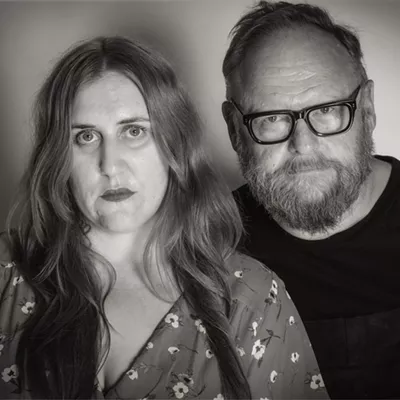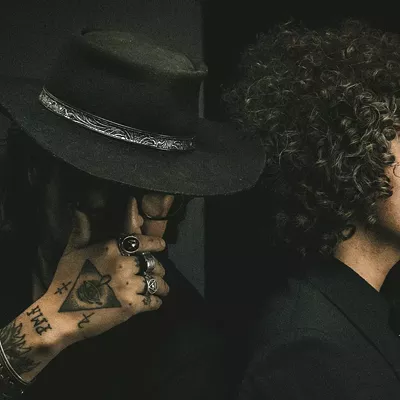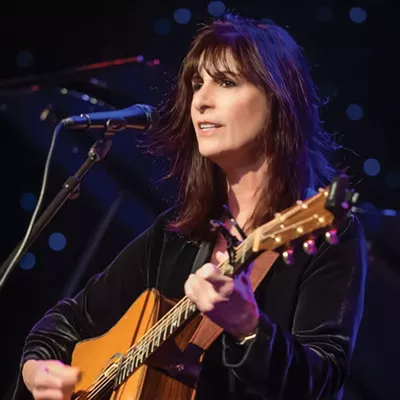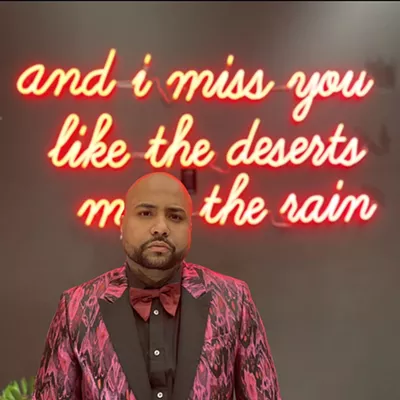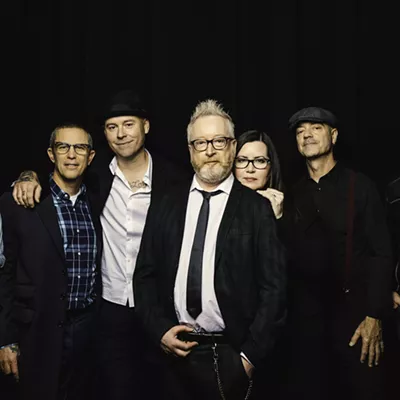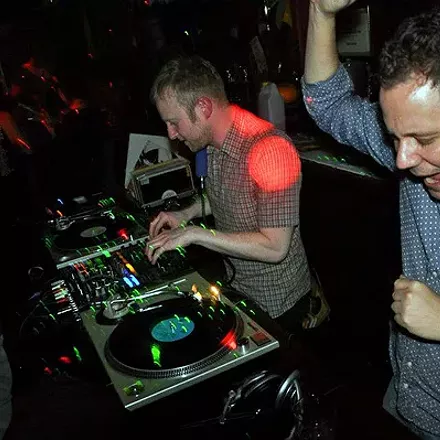Tucson Weekly: Since the tour is called the "Lottapianos Tour," I'm assuming you and Ben Folds each have your own piano. And if so, how is your piano different from Ben's?
Tori Amos: I play a Bösendorfer, and she's 9 foot 1. I've taken her all over the world. And I'm sure Ben's very close to his piano, too. And I think the main thing is about two very different approaches to the same instrument.
TW: A couple years elapsed between From Venus and Back and Scarlett's Walk; I know you had a daughter in that time, and you released a covers record. What other things in your life have been influencing your music these days?
TA: Well, I think when you become a mom, what can happen to you is you start thinking about how the world is going to affect their life, and the world you're bring this child into. Whereas maybe, when you don't have a child, you're more caught up in your own personal life, even though you might be involved in certain social concerns. For me, anyway, my relationship with what I believed in didn't take precedent until I became a mom.
Scarlett's Walk was very much about a woman questioning her relationship with the soul of her country, opposed to her relationship with those who run the country, and to segregate that idea, you have to separate the soul of the country from those who might be taking the soul of the country out. And the Native Americans came to really tell me that: The soul of our true mother is very different from those who control her. And unless we separate that, and understand that, then we can't act in her best interest--or the best interest for our children, as to the kind of world that they'll be given in 20 years. We all know America is at a crossroads right now. The whole world knows it, but we don't know it; we kind of need to wake up quick.
TW: Yeah, I noticed that a lot of the songs on Scarlett's Walk have that theme; did recording in Cornwall (England) help give you a different, maybe almost outsider, perspective on America?
TA: I have been touring here. I was in New York City, in midtown, on the 11th of September, and so I chose to keep touring, to begin the tour at the end of September 2001. I didn't cancel, because I felt that it was important for people to have a place to go to congregate, to talk about what they were seeing and feeling. In a time where a lot of media was being controlled, and if you spoke out or questioned what the government was doing, you were a traitor, and, you know, it's the oldest trick in the book. There was this great quote from (Hermann) Goering, from the Nuremberg Trials, and he said that the way to control the masses is that you call the ones who are questioning the government unpatriotic, and you just talk about an outside threat, and you can usually get the masses to agree with you. They've been doing this since the beginning of time, and that's what they've just begun to do again. So as I cross the country, from Southern states that are more right-wing to the West Coast, Seattle, which is more liberal, and the in-between--you know, the neo-conservative in-between--the same question kept coming up, which is: Why are we made to feel like we're betraying our country if we have questions? You know, it sort of just really troubles me. And that we were above any kind of law--we were even above our own law. And that started to trouble people from all ends of the spectrum, as I got letters every night, hundreds and hundreds of letters, just because a lot of people were canceling, and sometimes there were very few concerts in that town. So that kind of spurred on the writing of Scarlett's Walk. Then I went to Cornwall, and I was able to do my editing process with a bit of distance.
TW: Willie Nelson once said something about songs being more effective when the emotion is held back just a little below the surface. I've really been noticing that in your songs over the years, that your vocals are more refined, and more powerful. I'm wondering if you're noticing that, too--if it's a natural process or if it's something you're working toward.
TA: I think containment is something that has taken me time to really value. And I spend a lot of time by the water, and seeing how the water contains itself, and then, as a storm is beginning in the distance, how the ocean can turn into this formidable world in minutes. But É it can seem like it's the most docile place in the world, even though it has all kind of creatures in it, and it's bigger than anything else on our planet. É But just spending a lot of time, whether it's in Ireland or Cornwall or Florida, by the water, and seeing how she can contain herself as an essence has influenced me.
TW: Traditionally, your fan base has been teens and younger women, and your first generation of fans are all in their 20s now -- do you think your newer material still speaks to the girls who are 12, 13 and 14 today?
TA: Depends how intelligent they are at 12, 13 and 14. I don't change my content to try and get a younger audience. There was a time when 12- and 13-year-olds were picking up Sylvia Plath. So it all depends where you are, as a thinking being, and a feeling being, and sometimes you just gravitate towards other artists, and that's why there are plenty out there. Some tap into the archetypes you're working with, and I might not be tapping into those that are influencing teens at this time. I might have made toward a little bit of that, in, say, something like Boys for Pele, years ago, when I was trying to learn about the consequences of stealing someone else's fire. The mistake that I made that the dark prince is a man. So you see, those are just things that I was discovering in 1995, in 1996, and now I think that gets integrated into my work, and the turning point in certain periods of my output when I was dealing with loss, or emotional vampirism. Scarlett is about how all those different times are imprinted on you as a writer and I'm more interested now in how you have your personal life and your political beliefs, and they have to work together; what you believe in is who you are. And if you believe it's OK to defecate on women, then that's part of who you are.

